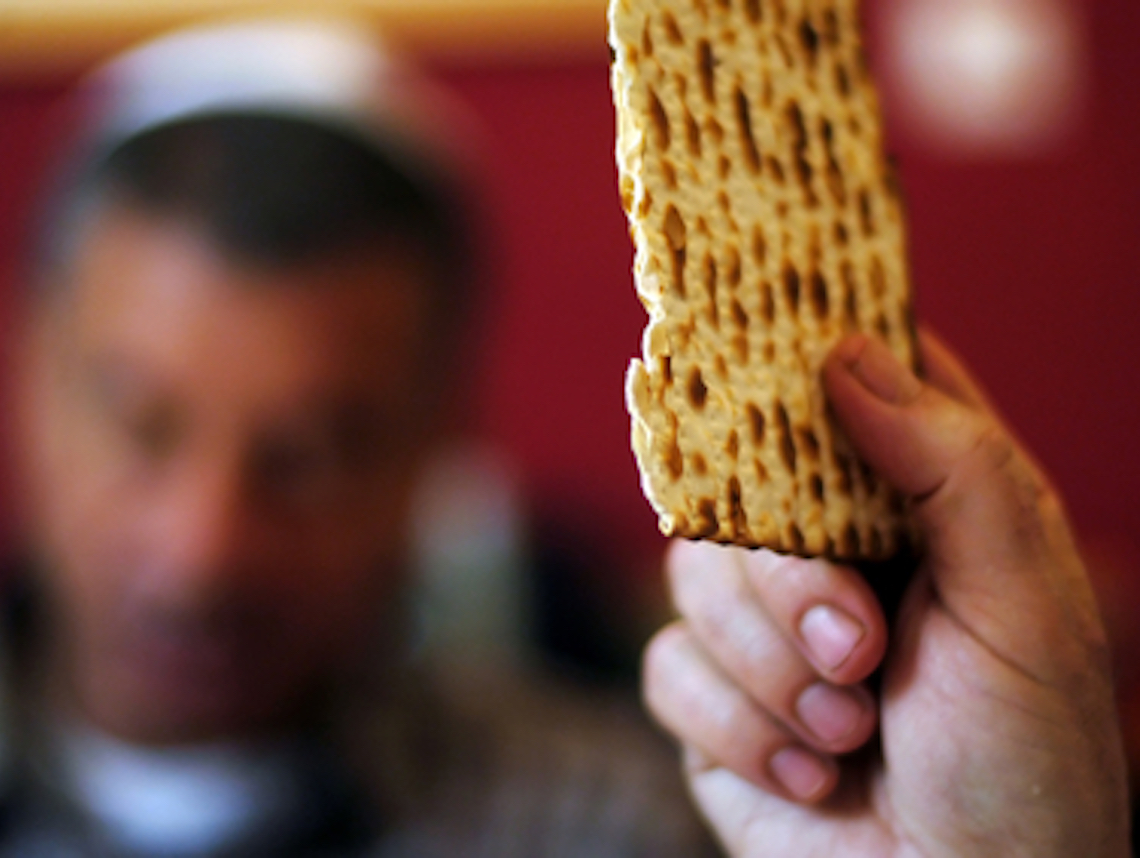
Like millions of Jews around the world, Persian Jews will have to decide whether to host large Passover seders or to do something something unfathomable: have a seder alone. Or at least without extended family.
Not to be hyperbolic, but Persian Jews haven’t faced such a divisive dilemma since they had to decide whether to leave Iran after the 1979 Islamic revolution.
We take seders very seriously. Although there’s some flexibility in sporadically skipping weekly Shabbat dinners with family, one’s rear end must be present at a Persian Passover seder, even if the family is unaffiliated.
In early March, I scoffed at the notion of not having my parents, in-laws, my sister and her family at our seder table because I refused to entertain the idea that our annual family seder could be canceled. Simply put: It’s never happened.
Not in my lifetime or even in my mother’s lifetime (She’s 70). I’d speculate that none of our ancestors spent a Passover seder without their children or extended family in the 2,700 year history of Iranian Jewry. It’s that ingrained in our culture.
Maybe, hundreds of years ago in the Persian Empire, a few ancestors — most likely teenagers — began to lose interest in the seder. At that point, a sage visionary must have offered adding scallions as part of the “Dayenu” recital and encouraged family members to diplomatically (or enthusiastically, depending on their interpersonal history), beat others with scallions. After that, no one lost interest in Persian seders for a long time.
But in mid-March, I finally had to accept the news. Worse, I had to deliver the news.
“Tabby, are we coming to you the first or second night?” my mother asked.
“We are not having any guests this year because it’s too dangerous to be together. We’ll miss everyone so much.”
Maybe some families will argue they’ve been through too much to let a virus scrap their seders together.
And then, coward that I am, I hung up. I simply couldn’t bear to hear the disappointment in my mother’s voice. I also am devastated that our extended family will not join us this Passover.
When she asked the same question the next day, I said, “Mom, believe me, there’s nothing in the world I’d love more than to beat you with scallions, but the separation especially is meant to keep you and Dad safe, so next year, God willing, we can all be together.”
My mother was very sad, but understood. That can’t be said for all Persian mothers. Some families still are planning to host large seders despite the threat of spreading the coronavirus. That’s dangerous, to say nothing of the irony: Imagine infecting someone with a plague during a Passover seder.
Maybe these families have plans to avoid physical contact, to seat guests one foot away from one another (that still won’t be enough distance), and to offer lamb shank, charoset and hand sanitizer on the Passover plate, but if I were a guest at one of those seders, I wouldn’t want even a single scallion that had been held by someone else to touch me. I’d politely decline the invitation.
Maybe some families worry this will set a terrible, irreversible precedent: children who voluntarily separate from their parents and hold their own “rogue” seders. Perhaps parents worry they’re abandoning their adult children, or adult children will feel they are abandoning their parents, and will be shamed by the community. If that’s the case, we as a community need a serious self audit.
Maybe some families will argue they’ve been through too much — revolutions, wars, resettlement and the trauma to survive — to let a virus scrap their seders together. I’d argue that precisely because they’ve survived so much, they should assign more worth to the gift of life.
For those staying home this year, I applaud you. I know how hard it is especially if you live alone. But maybe you’ll make history. You’ll be among the first Persian Jews to host a seder via video teleconference in 2,700 years.
For well-intentioned, hospitable hosts or their enthusiastic guests, I beg you to stay home this year. It’s just one Passover. A seder alone is worth everything if it means not having to die alone in a hospital. Having your children around your seder table is meaningless if no one will be allowed around your deathbed, not even to recite a prayer.
As for the scallions, there’s always next year, if we do our part and God does His. May we all be healthy enough to enjoy extended family seders next spring with many hugs and kisses and a few whacks.
Tabby Refael is a Los Angeles-based writer, speaker and activist.























 More news and opinions than at a Shabbat dinner, right in your inbox.
More news and opinions than at a Shabbat dinner, right in your inbox.